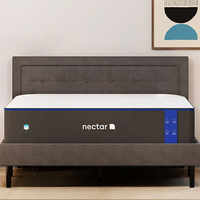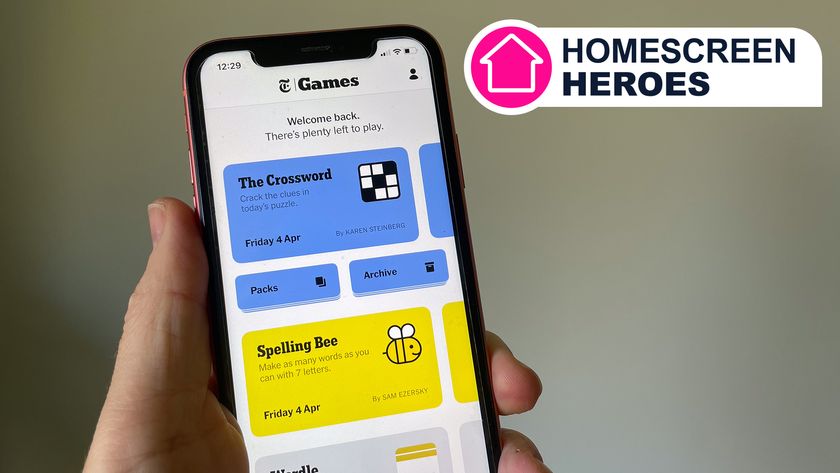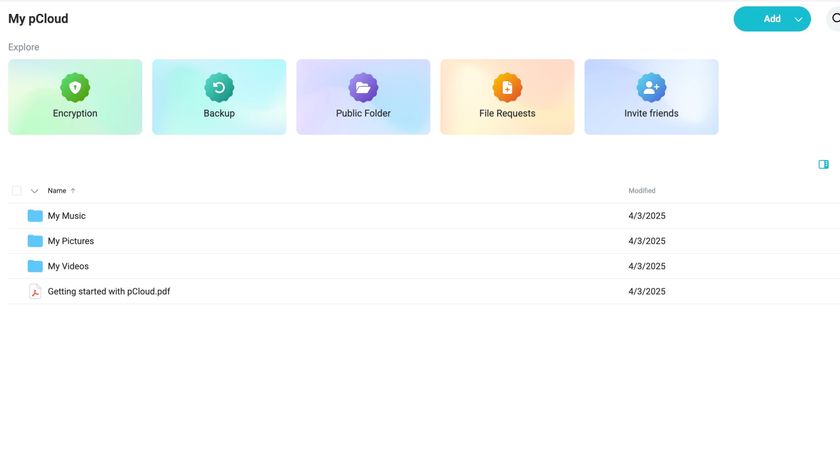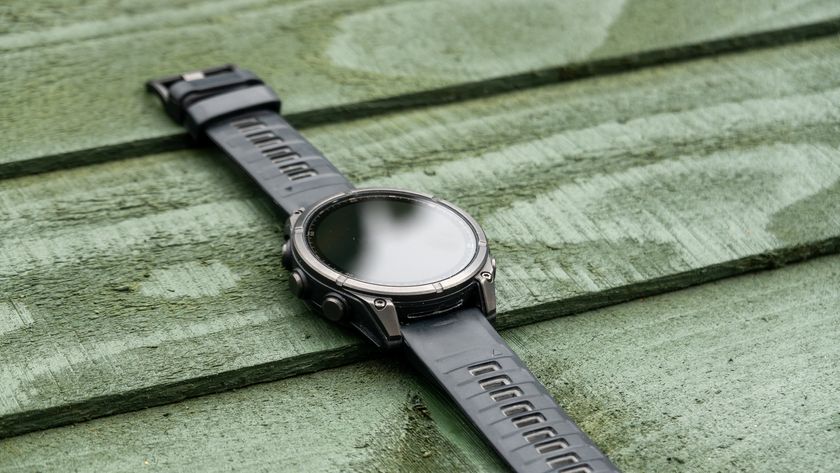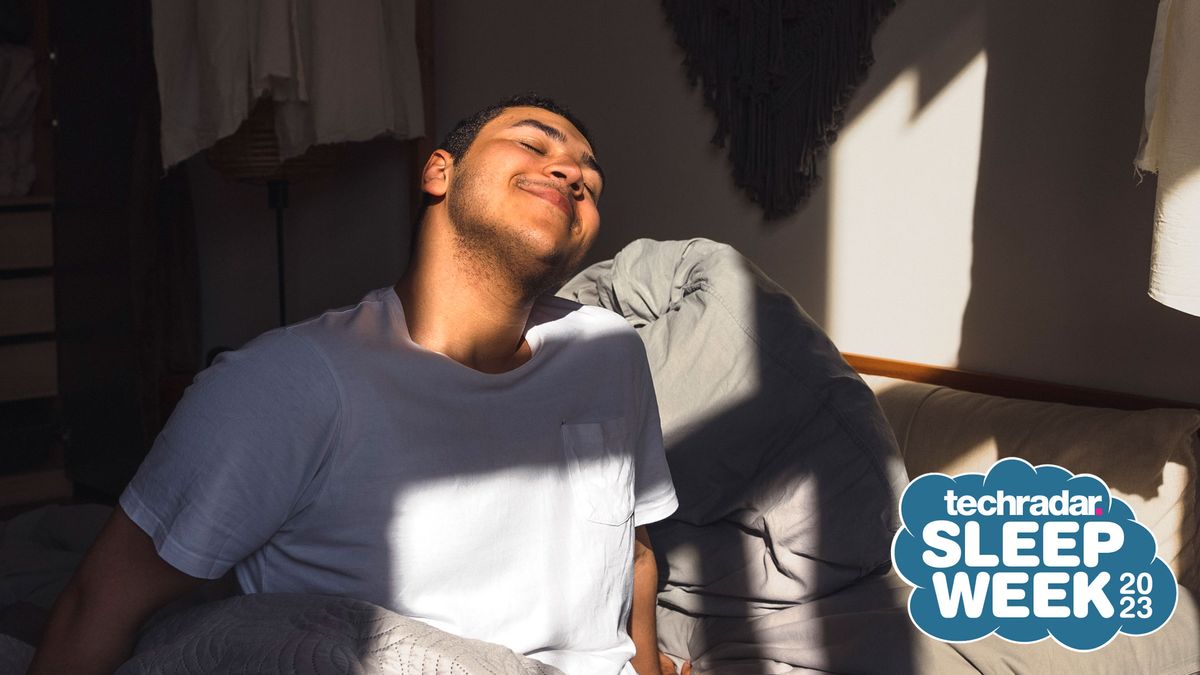
If you're not a morning person, then getting up early can feel like your world is crashing around you. First comes denial: if you shut your eyes and hit snooze, maybe it'll all turn out to be a bad dream. Then, when you face reality, comes misery as you slump out of bed, fix yourself a coffee and try to shake yourself out of your slumber.
Finally, as the caffeine kicks in and fights with your sluggishness, comes anger, as you curse the world and everyone in it. But it doesn't have to be like this.
Whatever age you are, if you need to wake up early on a regular basis, then a few simple adjustments to your lifestyle and habits will help you do so without feeling tired. And that means that even if you're lying in comfort on the best mattress and best pillow, you'll still be happy to get out of bed.
Read on to find out how you can wake up early and still feel energized, motivated, and ready to face the world.
1. Establish a regular sleep schedule
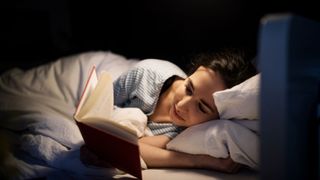
The cornerstone of how to wake up early without feeling tired is establishing a regular sleep schedule. In plain English, that means going to bed and waking up at the same time, every single day. Yes, even on weekends. (Okay, we know that last bit sucks, but ultimately, the overall benefits will outweigh the joys of the Saturday morning lie-in.)
"A regular sleep pattern is very important, because the entire body is synchronized by its circadian rhythm and sleep wake is an important rhythm," explains Dr. Abhinav Singh, medical director of the Indiana Sleep Center, contributor to SleepFoundation.org and author of Sleep to Heal: 7 Simple Steps to Better Sleep.
Of course, getting in bed doesn't always mean sleep. "So routines are key," he adds. "That means: have a wind-down ritual prior to bedtime. Shower. Journal. Read. Breathe. It's just as important as your morning routine. Remember, tomorrow starts tonight!"
Get daily insight, inspiration and deals in your inbox
Sign up for breaking news, reviews, opinion, top tech deals, and more.
2. Get enough sleep
Having a routine won't work, of course, if you don't allow yourself enough sleep in total. Many adults think that five to six hours a night is sufficient: it isn't. The consensus among sleep experts is that you should aim for between seven and nine hours of sleep each night.
This means that if you need to get up early, you may have to start going to bed earlier than you'd like. And as a grown-up, that may bristle.
If you're young, free and single, you may want to stay up and party. If you've got kids, you may relish the "free time" you get after you've put them to bed. Or maybe you're just enjoying a Netflix boxset, and can't resist "just one more episode".
In such cases, there's no magic solution: if you want to get enough sleep, you're just going to have to compromise on your preferred lifestyle. As Dr. Singh says, you basically need to give yourself a good talking to. "Tell yourself, Better Sleep = Better Health = Better Life," he says.
"And the converse is true as well: Poor Sleep = Poor Health= Poor Life."
Soon enough, you'll have established your new routine, and be feeling the benefits of feeling more refreshed, energized and happier every morning. And if it takes a few extra days to get through that Netflix series… is that really so bad?
3. Avoid caffeine and alcohol before bed

A glass of wine, a cup of coffee or a cigarette can be a lovely treat before bed. But as stimulants, all of these substances will disrupt your natural sleep patterns, and make it harder to wake up in the morning.
One study, for instance, found that 400mg of caffeine (about four or five cups of coffee) taken 0, 3, or even 6 hours prior to bedtime significantly disrupts sleep. So if you want to wake up feeling refreshed, it's best to avoid them for at least a few hours before bedtime.
This advice often falls on deaf ears, of course. Because many people say they can't sleep without caffeine, alcohol, and/or nicotine. And in the short term, they may – in one sense – be right, says Dr. Singh. "It probably has become a conditioned part of their evening sleep routine; like a pacifier," he explains.
Indeed, Dr. Singh is no fundamentalist on the issue. "In small amounts, if it is not bothering your ability to fall or stay asleep and you feel fine the next day without noticeable consequences, then you're probably okay doing it," he points out. "But in general, all of these stimulants have anti-sleep properties, such as lowering the ability to go to deep sleep, increasing snoring, increasing time to fall asleep and fragmenting sleep once initiated."
4. Create a relaxing sleep environment
Another key element in achieving a good sleep routine is to create the right bedroom environment. That means blocking out any noise distractions that could disrupt your sleep. It also means making your room as dark as possible, because as studies show, the modern world's use of electric light has significantly disrupted the circadian rhythms that help us sleep.
"Your bedroom should be cool, dark, quiet and light-free," says Dr. Singh. "Eye masks can be a good idea. Ambient sounds from a white noise machine can help in certain cases." Or, if you prefer, the best sleep earplugs are another way to block out unwanted sounds.
5. Limit your screen time
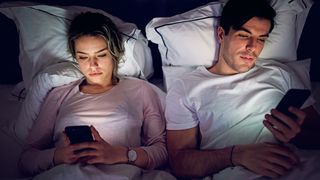
Spending all evening on your phone, tablet or laptop can be irritating to people you live with. But even if you live alone, it's good to put down these devices long before bedtime.
The blue-green portion of the light emitted by electronic screens is particularly damaging, explains Dr. Singh. "That's because it can reduce your body's natural melatonin production, and delay and deplete the quality of sleep. It's like driving a car with low tire pressure: you feel the drag and the bumps more.
"So I'd recommend turning off your screens at least an hour before going to bed," he adds. "Also, put on your 'do not disturb' mode much earlier: two to three hours before bed."
6. Take a bath
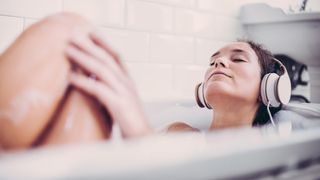
Do you feel so groggy in the morning that you need a shower to wake you up? Then maybe you should reverse your routine, and have one before going to bed instead.
"A bath or a warm shower can help with sleep in the following ways," explains Dr. Singh. "Firstly, it lowers your core body temperature, which facilitates melatonin release and helps sleep. It also relaxes your muscles and skin and helps you feel calmed and ready for sleep.
"There's also a small amount of research that suggests it may increase the time you spend in the deeper states of sleep," he adds. "In my opinion, 20 minutes or less in the bath is enough, and the water should be warm but not hot."
7. Use natural light to your advantage
Our bodies evolved to respond to the natural rhythms of daytime and night time. So if we experience light in the morning it helps us wake much more naturally than if we're lying in darkness. This helps regulate your circadian rhythm and make it easier to wake up feeling refreshed.
For this reason, it's a good idea to open your curtains or blinds as soon as you wake up. Alternatively, if you need to wake during the dark hours, consider investing in a wake up light, which gradually lights up in a way that mimics the rising of the sun.
8. Avoid the snooze button
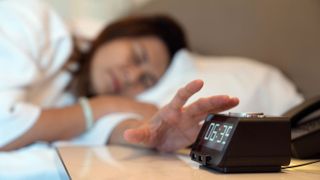
When you don't want to get up in the morning, it's tempting to hit the snooze button on your alarm clock. However, doing so on a regular basis can actually be detrimental to your sleep health.
When you hit snooze and go back to sleep, you're interrupting your sleep cycle and potentially causing sleep fragmentation. This can make you feel even more tired and groggy when you finally do wake up, as your body hasn't had the chance to complete a full sleep cycle.
For this reason, Dr. Singh suggests you limit your use of the snooze button. "Only snooze once, and for less than 10 minutes," he recommends. "Excessive snoozing is like wasting jet fuel while circling a runway and not landing! If you feel the need for excessive snoozing, then you are not getting enough sleep, so you may need to talk to your doctor about this."
We won't lie: some of these tips may involve a lot of adjustment to your life, and you may struggle to break the bad sleep habits that you've built up over a lifetime. But once you've successfully incorporated all of this advice into your daily routine, you'll find it is possible to wake up early without feeling tired, and start your day off on the right foot.
As Dr. Singh says: "Muscles are not built with one visit to the gym, are they? So you need to train the sleep muscles before you feel the benefits." Be patient, be consistent, and you'll soon find that early mornings is a time you look forward to, rather than dread.
Nectar Sleep Awareness Week Sale: 33% off everything
Sleep Week savings - Nectar is celebrating Sleep Awareness Week by taking 33% off all its mattresses. This means that the ever-popular Nectar Mattress is available from $359 in a twin size, while a queen will cost you $699. All Nectar's mattress are available in memory foam and hybrid options, and we rate them among the best in the business, so don't miss out on this deal!

Dr. Abhinav Singh, board certified in Sleep Medicine and Internal Medicine, is the Medical Director of the Indiana Sleep Center, which is accredited by the American Academy of Sleep Medicine. He is also a Clinical Assistant Professor at Marian University College of Medicine in Indianapolis, where he developed and teaches a Sleep Medicine rotation to medical students. Dr. Singh’s research and clinical practice focuses on the entire myriad of sleep disorders, including excessive daytime sleepiness, narcolepsy, sleep apnea, chronic snoring, insomnia, and sleep education.
This article is part of TechRadar's Sleep Week 2023 celebration (running until Saturday 19 March), a week-long look at all things slumber. We'll be bringing you proven techniques and tips to help you sleep better, and have rounded-up all the top-rated tech to transform your sleep.
Tom May is a freelance writer and editor specialising in tech, design and sleep products. Over the years he's tested a number of mattresses, duvets and pillows, and as a back pain sufferer, has a keen interest in finding ones that offer maximum support. Plus, in running a successful Airbnb business, sleep hygiene and providing the right bedding for guests has become a big part of his day-to-day life. He is author of Great TED Talks: Creativity, published by Pavilion Books.

Midjourney V7 gives the AI image-maker power, speed, and correctly shaped hands

This Ryzen-powered NAS is barely bigger than a shoe box and can hold 11 SSDs and HDDs, delivering more than 500TB of storage

This is the world's first 1TB microSD Express card to go on sale, just in time for the launch of the new Nintendo Switch 2

